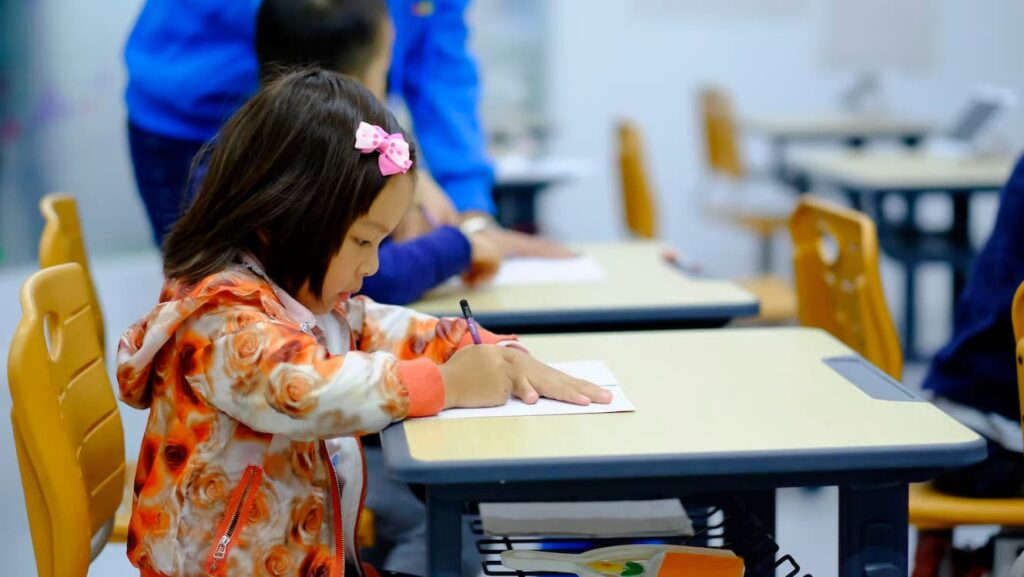Healthy Kids Learn Better
Healthy Kids Learn Better
Experts agree that health and education are closely linked. Kids can concentrate better in class when they are strong and healthy. Healthy students also have higher attendance rates than students who do not receive adequate nutrition.
While nutrition is a significant contributor to kids’ health, exercise and other external factors also impact student health on multiple levels. Comprehensive student health considers students’ physical, social, and emotional well-being, making fitness a complex issue.

Health and Education
Following are the ways that parents and students should adopt to perform well in education:
- Informed Health Choices
Better-educated students can make more informed decisions to support their health and academic capacities. The main factors that promote productive learning are good nutrition, exercise, and a positive emotional environment. Students are stressed when these aspects are missing.
Another factor influencing the learning experience is a lack of sleep. They may fall asleep in class and miss most of the lesson due to poor nutrition or struggle to focus if they are emotionally stressed. Students must be able to obtain basic information on how to care for their health while studying if they are to perform optimally.
- Eat Nutritious Foods
Fresh fruits and vegetables should be consumed daily because they contain vitamins and minerals essential for cognitive development and concentration. Students should eat sufficient proteins to sustain their physical growth, which is another important aspect of developing bodies and minds.
Students’ concentration can be significantly disabled if they suffer from deficiencies due to eating too many processed foods and not enough fresh foods. When engagement suffers as a result of poor eating habits, academic performance suffers as well.
- Get Sufficient Exercise
Student health is heavily reliant on getting enough exercise. Fresh air and individual or team sports aid cognitive development in the same way that classroom learning does. Personal abilities and the ability to collaborate with others on a social level are developed.
Another beneficial side effect of exercise is discipline, which helps to strengthen the immune system and improve focus in the classroom. Students’ concentration suffers when they are lazy or weak from a lack of exercise. Furthermore, their energy levels will not be optimal for learning in the classroom.

- Children and Teenagers Need Sleep
When children and teenagers are awake, they expend enormous amounts of energy, which is why they eat and sleep so much. Because these are growing years, their bodies require a lot of good food and sleep.
The opposite is also true. Children are more likely to perform well in school if they get enough sleep, eat well, and have a positive emotional environment. When these elements are missing, their academic performance will suffer unnecessarily.
- Coordinated School Policies
Organized health plans in schools and colleges contribute significantly to overall student health. Policymakers recognize that total health is critical to achieving better educational outcomes for all students.
Because student health is so important, it takes time to create policies and implement comprehensive action plans to care for them outside the family home. Federal wellness plans are complex due to the various levels that contribute to overall health, but they are necessary because healthy students learn better.
- Student Counselors and Academic Progress
If a student has a problem at home, they can speak with a school counselor to find a solution. Because home environments can be detrimental to emotional health, students can use school resources to help them manage their emotions.
When students’ emotional well-being suffers, stress makes learning more difficult. This is why providing support outside of the family home is critical. Parent and teacher communities are frequently called upon to monitor students’ emotional situations and intervene as needed.
Conclusion
Because their physical, emotional, and mental well-being is balanced, healthy students learn better. Happy students can focus better and are less stressed when their good fitness is supported by exercise, good nutrition, and a supportive emotional environment. Any stress level is bound to impact academic learning, which is why student health must be supported and maintained.




